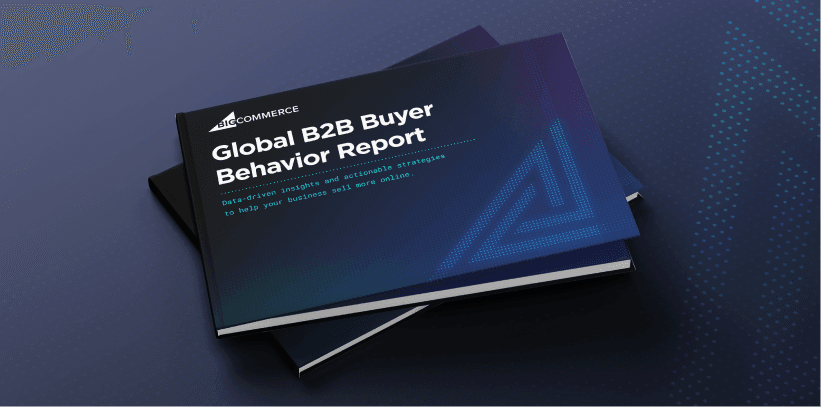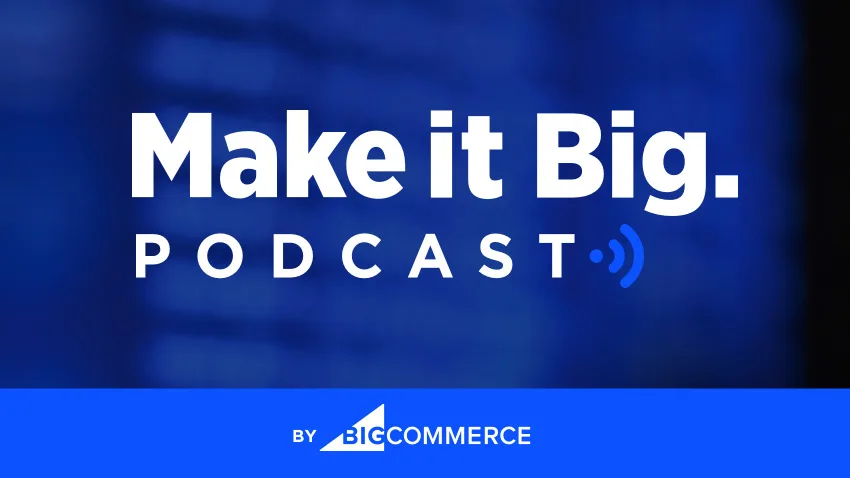
Ecommerce insights on the go
Tune in to the Make it Big Podcast — our thought leadership audio series for retailers, entrepreneurs and ecommerce professionals. You'll get expert insights, strategies and tactics to help grow your business.

How to Build an Influencer Program for Your Brand in 6 Months (No Massive Payout Required)

It’s a question I’m asked at every single in-person meetup I do:
“What is your advice about using social influencers to grow sales?”
And, it’s a very hard question to answer.
I know brands that are making millions through their social media influencer programs without hardly spending a dime (or at least that’s what the ROI makes it feel like).
But those brands started doing influencer marketing before it was known as “influencer marketing.”
That was back when it was just called networking and giving products to cool people you saw on Instagram to see if they liked what you were making.
That was back when those influencers weren’t demanding a ton of pay out for a single post. That was back when it was just about connecting good people with good product.
Today, influencer marketing is still about connecting good people with good product, but it costs a whole lot more than it would have if you had started 3 years ago.
Influencer marketing today is a new buzz term. And brands across the spectrum of industries use social media influencer marketing in a variety of ways.
Every single brand mentioned on the Kardashians? That brand paid for it.
Every brand Instagrammed out during Coachella by someone with 100,000 followers? Yeah, they paid for it.
Hear a quick name drop of a brand on your favorite YouTube star’s channel? Paid for.
I heard someone say the other day that influencer marketing is the new QVC.
And it definitely is. Someone recommends something, tells you why and gives you the price (often with a discount for using their name at checkout) – that is the QVC model of our age.
Now, this isn’t to say that influencer marketing isn’t worth the money. It can be. And those influencers deserve to be paid. After all, they’ve built followings and know how to connect with people. That’s invaluable for brands!
But what if you don’t have the cash flow to buy influencers?
That doesn’t necessarily mean you have a bad product. It doesn’t mean you can’t connect with audiences. Even brands influencers love often pay for their recommendations. It’s just the way of the world. People need to make money –– you know? Even social media stars.
But so does your brand.
That’s why I went on the lookout this summer for a brand that has managed to grow an influencer network and build a community within 6 months.
That’s right.
Spellbinders built an influencer marketing strategy within 6 months that grew their brand awareness 167% –– and so can you.
I didn’t think it was possible either, but Shelley Baugh, the Social Media and Community Manager at Spellbinders, set me straight.
It turns out that with the right product, the right tools and the right attitude, any brand can hop on the influencer marketing train today –– and see results in just 6 short months.
Here’s how they did it.
When did you first get started with influencer marketing?
As told to Tracey Wallace by Shelley Baugh, Social Media and Community Manager at Spellbinders.
We just got started I’d say a few months ago –– 6 months ago. I can’t even remember now. I feel like I live in that world.
Have you seen any immediate uplift in sales or traffic? How are you measuring the return?
As told to Tracey Wallace by Shelley Baugh, Social Media and Community Manager at Spellbinders.
We’ve seen huge uplift in our traffic –– that is, in organic traffic that comes to the site. We’ve especially seen growth on what we call our Gallery page. It’s actually a product by Curalate called Fanreel. It allows us to promote user-generated content on the site.
To be honest, we just launched that page a month and a half ago and have already had 130,000 unique visitors.

Just on that page, we’ve gotten 85,000 clicks and 64,000 hovers.
That page really helps us to allow the community we’ve built to engage with one another and participate. It’s how we recognize their crafting talent.
Let’s talk about that community. It didn’t exist 6 months ago. How have you grown it to where it is now in such a short period of time?
As told to Tracey Wallace by Shelley Baugh, Social Media and Community Manager at Spellbinders.
Yeah, of course. I started the influencer program right when I first started with the company. It has definitely been a lot of learning through various processes.
A lot of our influencers, to begin with, were never working with brands before. So it’s always been trial and error, for us and for them. We work with them and get their feedback to see what works best for them and their own audiences.
Today, we have about 60 influencers and they live all over the world.
We have somebody in Asia. We have a handful in the UK and the Ukraine, as well as all over the United States and Canada.
Do you do anything in particular to encourage them to talk or post about the brand?
As told to Tracey Wallace by Shelley Baugh, Social Media and Community Manager at Spellbinders.
Well, I work with them on a month-to-month basis, giving them product and inspirational themes. From there, they create content.
We work on an individual basis depending on how much content they create for us, what projects they’re working on, and then they post to their sites. It’s a really unique process for every different influencer and most of them have their own unique themes each month.
That’s something I want to change next year. I want to create a blanket theme for everyone so that I can scale the influencer program and get more folks in.
You really try to give each one some creative freedom, at least as you’re getting the influencer program off the ground.
As told to Tracey Wallace by Shelley Baugh, Social Media and Community Manager at Spellbinders.
Exactly. They’re so happy and they’re so willing to create that it’s best to let them run with it all!
I think that if you give them too much direction, you’re going to limit their creativity and then not show the whole use of your product.
So, I like to give them a little bit of an idea of what we’re looking for. They all work differently. So some will come back to me with questions: “Do you want this, this and this?” Or, “I have this idea” and we can play that way.
And some just run with it and come back with some amazing stuff with very little direction from me.
Do you offer anything in particular from Spellbinders other than product or monthly themes?
As told to Tracey Wallace by Shelley Baugh, Social Media and Community Manager at Spellbinders.
Of course! Our influencers can be a guest blogger on our blog. They can participate in blog hops, giveaways and affiliate marketing commission.
We actually have a Spellblogger –– influencers that blog are called “Spellbloggers” –– and we have a Spellblogger hop going on right now. What that is, is we provide a giveaway for them and promotion for the hop to help them increase their audience.
Essentially, we try to work with them on helping their audience fall in love with our product.
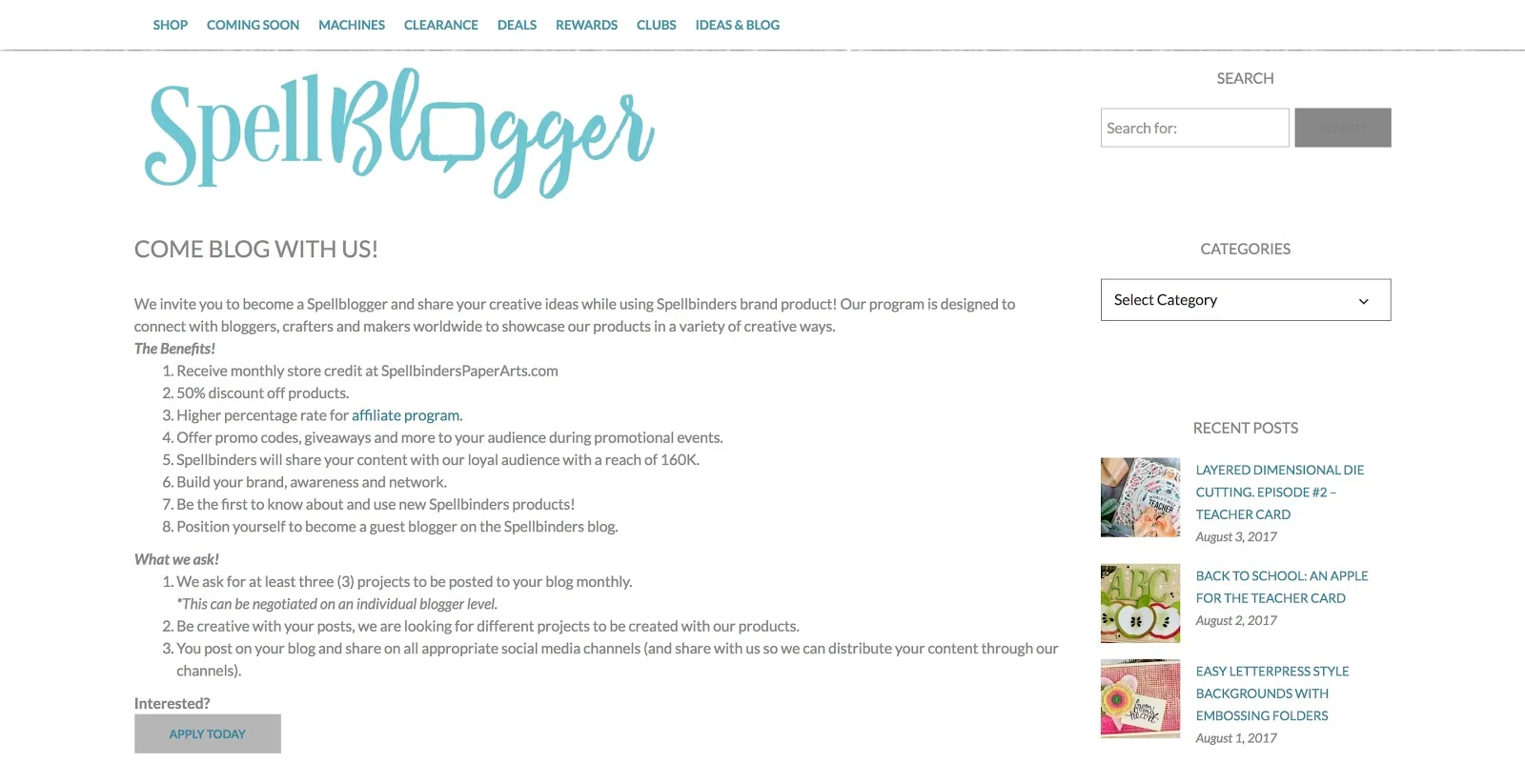
Can you spell out the process for doing that from beginning to end?
As told to Tracey Wallace by Shelley Baugh, Social Media and Community Manager at Spellbinders.
Our content marketing plan includes us providing them with new collections and SKUs that we want to have them push. Sometimes it is about the influencer and wanting to see what they can create with a certain item, and with others it is about our overall marketing strategy.
The marketing team develops monthly themes for our promotions, blog and influencers to focus on.
Included in our content strategy we also utilize our in-house designers, licensed designers, those who design the collections as well as traditional media. We try to focus on showing the diverse ways you can use our products.
I know I’ve asked about ROI a bit already, but are you tracking the brand visibility of these efforts at all?
As told to Tracey Wallace by Shelley Baugh, Social Media and Community Manager at Spellbinders.
I do. Of course, it’s hard to directly correlate the URL to the ROI. But getting all of that brand awareness out there has really contributed to overall growth in sales as well as growth in people recognizing Spellbinders as a whole, and people coming to our site on a daily basis.
We also have an affiliate program, as well. Most of the influencers use affiliate links. We do that through ShareASale and Amazon.
A lot of your influencers sound like they are bloggers. Do they use Instagram, too?
As told to Tracey Wallace by Shelley Baugh, Social Media and Community Manager at Spellbinders.
Well, we used to not get any clicks on our Instagram at all. So, we’ve seen a spike in that and we’re hoping to continue to grow it.
It’s difficult though because our audience is a little bit older. When I started, our audience was about 55+ and now we’re about 41+. A detailed Instagram analytics platform (such as Owlmetrics) will help you see your audience demographic.
We’re trying to educate them. A lot of them created Instagram just because we were doing so much with it, so getting them into the habit of using it is one of our challenges.
Our Instagram channel has actually grown 164% since I started and I contribute a lot of that to our influencer program.
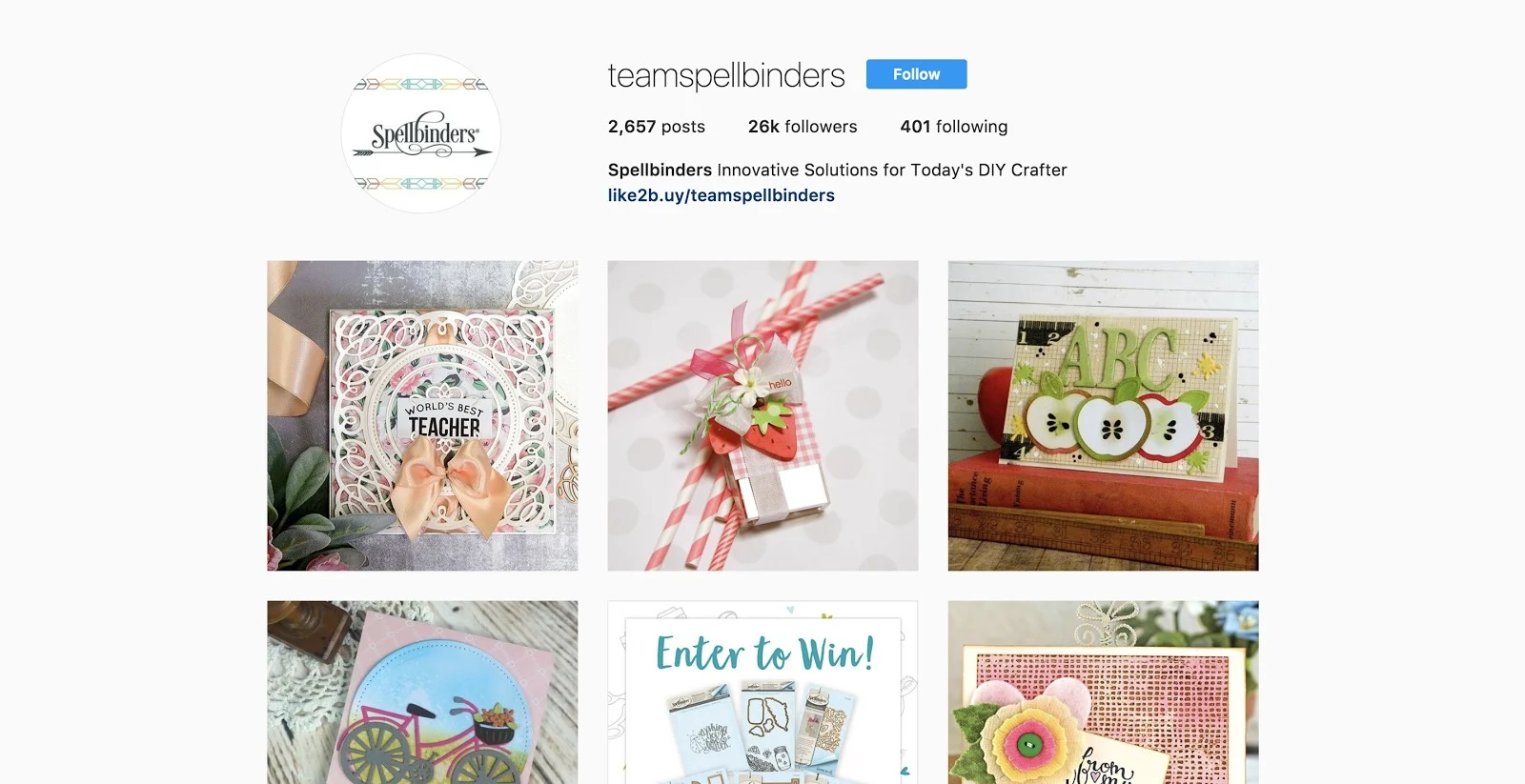
Beyond that, we use another Curalate tool, Like2Buy, which allows our Instagram followers to click on an image and then be able to buy it right there. Training our older audience to do that has also been a big challenge.
But that’s why we implemented Like2Buy.
We wanted to increase revenue from Instagram, but we also wanted to create direct links to our blog content. Like2Buy creates a platform for us to do both of those things.
Before with Instagram, we’d have a generic link in the profile, it would go to a blog page, they’d have to find the project, especially if we re-posted something. It’s just so nice now to have that link where they can view the tutorial, view the video and easily buy the products that were used to create this project. We love it for that –– and the ROI there is just increasing as our users get more and more used to it.
Are you doing any type of paid advertising to drive traffic to these pages or programs?
As told to Tracey Wallace by Shelley Baugh, Social Media and Community Manager at Spellbinders.
We did a push campaign when we launched the Gallery with some paid behind it.
Now, though, the only way we promote it is with our influencers. We make sure that they use our hashtags in everything that they do. And when they vlog, they’ll send me the video and I tell them which hashtags to use.
I’m advertising on all social media fronts, though. I probably use Twitter the least just because it’s not a DIY audience. We do Pinterest monthly and then we’ll do Instagram, YouTube, and then Facebook is our majority. We also do Google AdWords campaigns.
Talk to me more about your Facebook Advertising.
As told to Tracey Wallace by Shelley Baugh, Social Media and Community Manager at Spellbinders.
Facebook is our best cost per click. We try to focus a lot of our money there just because we get the most results. And, it’s so easy to target your specific audience, create cohort audiences, exclude people who are already interested in your product, etc. We also target people by those who’ve visited our website.
Facebook just has so many different features that I love!
Honestly, though, our social media advertising improves a bit month by month. It always depends on the audience we’re targeting. Our video content, for instance, does extremely well and then our giveaways and promotions are huge for lead generation.
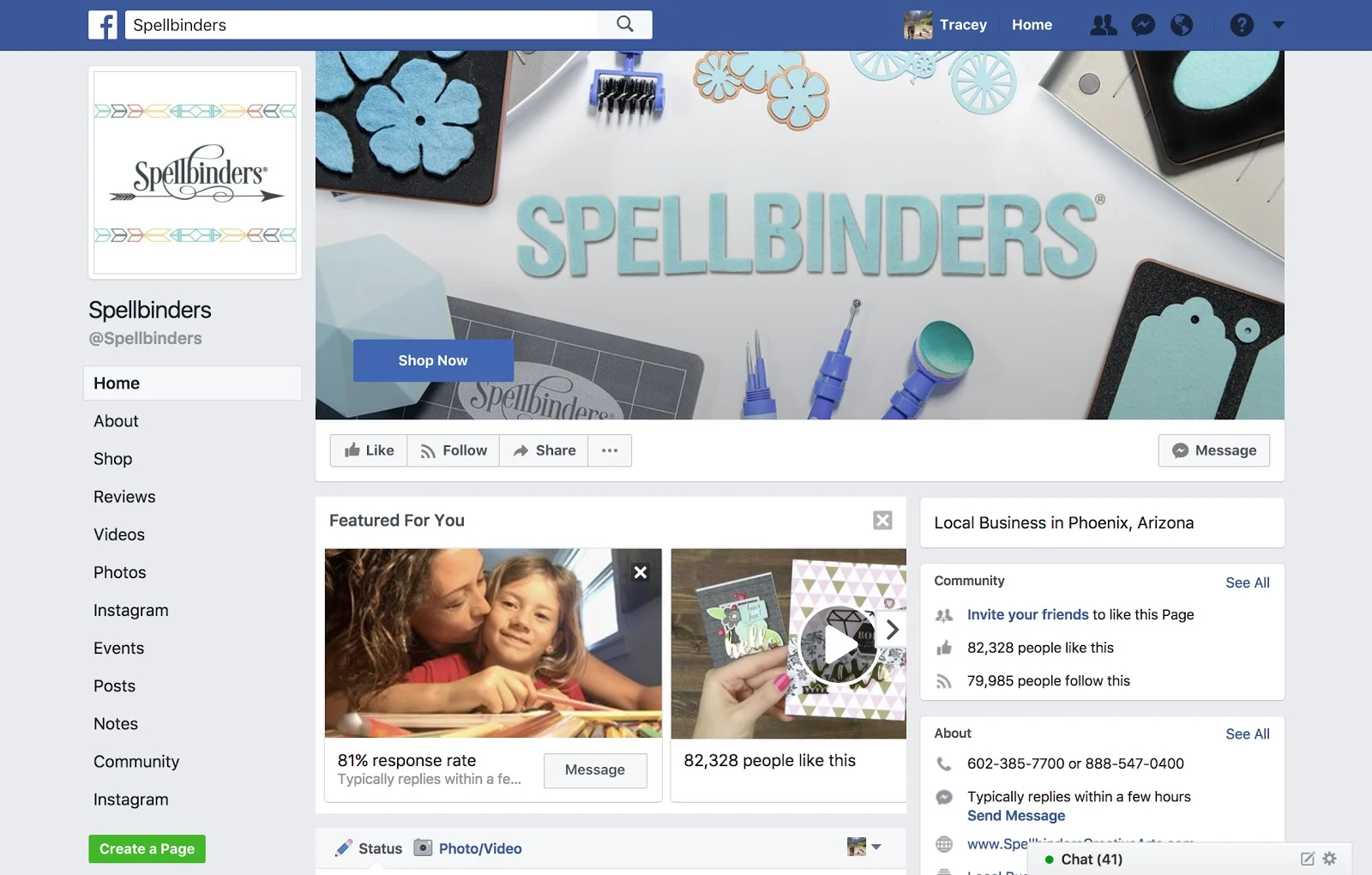
Other than Curalate, are you using any tools to make all of this work?
As told to Tracey Wallace by Shelley Baugh, Social Media and Community Manager at Spellbinders.
Yep!
We are using BigCommerce’s discounts and coupons to give our Spellbloggers free shipping and monthly store credit.
We also use BigCommerce’s Customer Groups to create a blogger-specific segment. I go in there monthly and give them unique discounts, which has been a tremendous help for my life instead of giving them individual codes or free product.
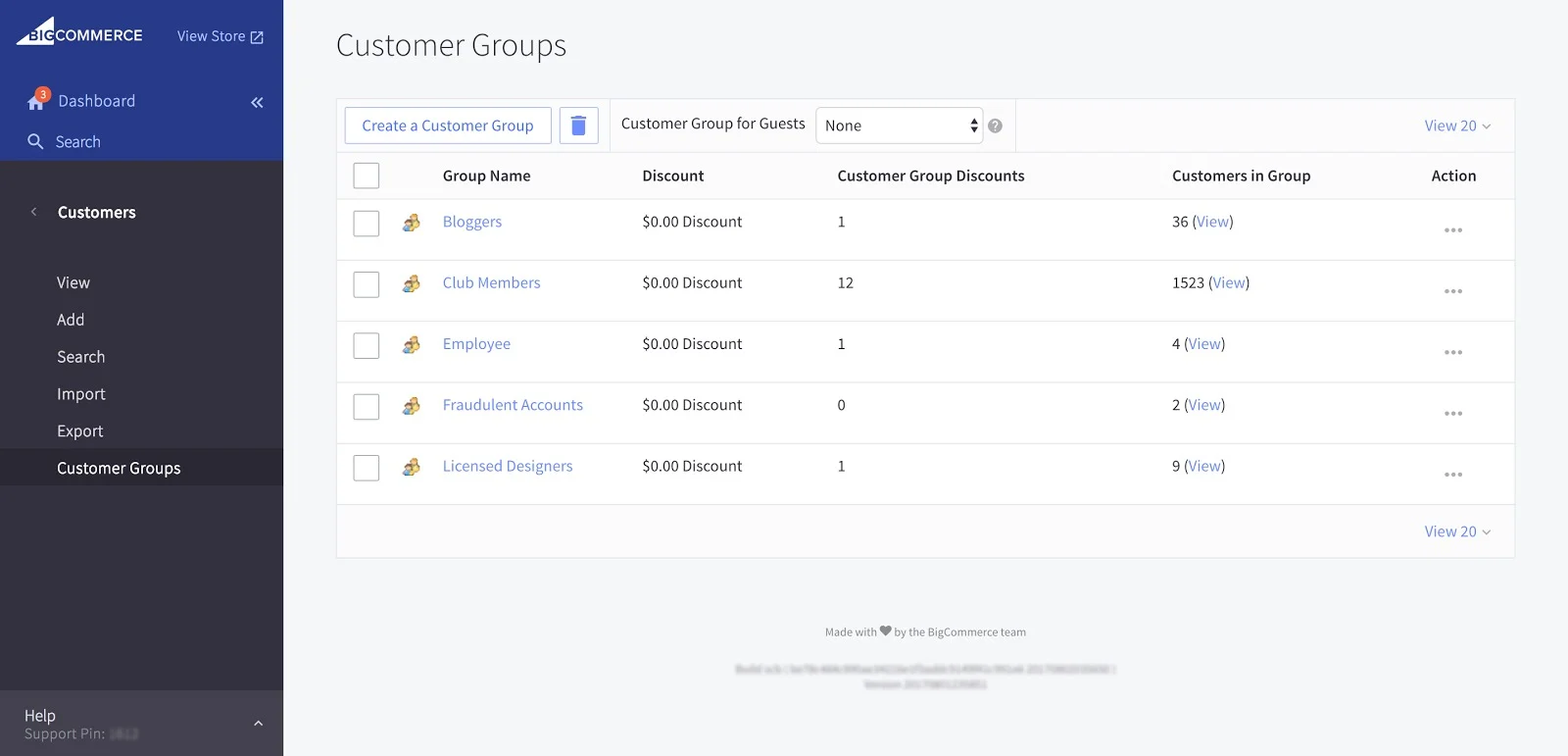
Well, you have just killed it in a short 6 months. What advice would you give someone else just getting started?
As told to Tracey Wallace by Shelley Baugh, Social Media and Community Manager at Spellbinders.
Honestly, just understand your community and really tailor your influencer program to that.
I think all brands are going to have to work differently with their influencers because they’re going to have different influencers. But with the craft industry, it was easy to see them as a giant community working together, being able to bridge that gap so they can connect with each other.
After that, it was just about figuring out how we could connect to them in an organic way.
Feeling inspired by Spellbinder’s success? Check out these additional influencer marketing tactics to build your own effective influencer relationships.

Tracey is the Director of Marketing at MarketerHire, the marketplace for fast-growth B2B and DTC brands looking for high-quality, pre-vetted freelance marketing talent. She is also the founder of Doris Sleep and was previously the Head of Marketing at Eterneva, both fast-growth DTC brands marketplaces like MarketerHire aim to help. Before that, she was the Global Editor-in-Chief at BigCommerce, where she launched the company’s first online conference (pre-pandemic, nonetheless!), wrote books on How to Sell on Amazon, and worked closely with both ecommerce entrepreneurs and executives at Fortune 1,000 companies to help them scale strategically and profitably. She is a fifth generation Texan, the granddaughter of a depression-era baby turned WWII fighter jet pilot turned self-made millionaire, and wifed up to the truest of heroes, a pediatric trauma nurse, who keeps any of Tracey’s own complaints about business, marketing, or just a seemingly lousy day in perspective.


